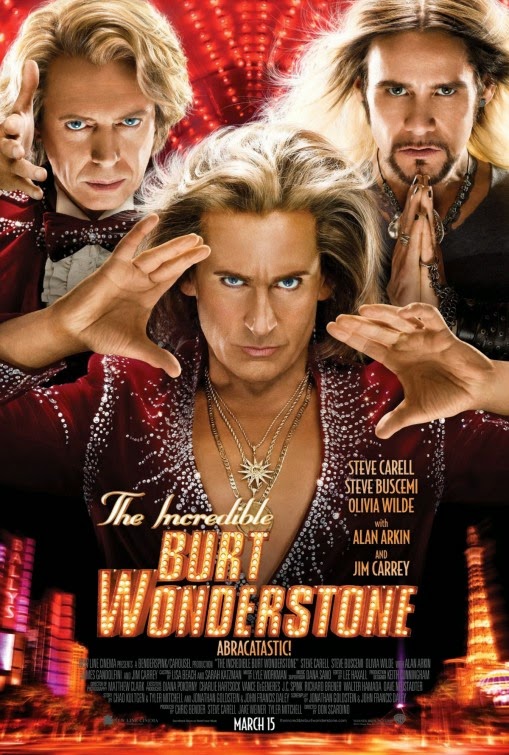LOVE THE COOPERS
Director : Jessie Nelson
Cast : Alan Arkin, John Goodman, Diane Keaton, Amanda Seyfried, Ed Helms, Anthony Mackie, June Squibb, Marisa Tomei, Olivia Wilde, Jake Lacy, Steve Martin
Genre : Comedy
Run Time : 107 mins
Opens : 10 December 2015
Rating : PG13 (Some Sexual References)
Family reunions are often where
grinning and bearing it is the order of the day. This Christmas comedy-drama
follows four generations of the Cooper clan as they reunite to celebrate
Christmas as one big, not-so-happy family. Sam (Goodman) and Charlotte (Keaton)
have been married for 40 years but on the brink of calling it quits, both
reluctantly agreeing to put on a brave front for everyone coming over. Their
son Hank (Helms) is recently divorced from Angie (Borstein) and is looking for
a job, having to provide for his kids Charlie (Timothée Chalamet), Madison
(Blake Baumgartner) and Bo (Maxwell Simkins). Hank’s sister Eleanor (Wilde), a
struggling playwright, meets military man Joe (Lacy) at an airport bar and they
kind of hit it off. Meanwhile, Charlotte’s sister Emma (Tomei) gets arrested
for shoplifting by Officer Percy Williams (Mackie). Grandpa Bucky (Arkin)
befriends diner waitress Ruby (Seyfried). Christmas dinner doesn’t go according
to plan as a series of events unfolds, events that could drive the family
further apart or bring them together in the spirit of the holiday.
Every Chinese New Year, we get star-studded comedies like
All’s Well that Ends Well, with
posters that have Andy Lau, Chow Yun Fatt, Cecilia Cheung or Carina Lau
grinning and holding their chopsticks up in the air. Well, Hollywood has movies
like Love the Coopers. This is the
kind of film which one can bring grandpa and grandma to during the holidays and
it’s meant to please everyone, naturally pleasing nobody in the process. The
goings-on are at once mundane and over the top, with the Coopers depicted as
dysfunctional in a relatively pedestrian manner. Before everyone gets together
a little after the halfway mark, the film flits from character to character,
stringing the vignettes together. Every line of screenwriter Steven Rogers’
dialogue sounds like stock romantic comedy-drama drivel and it’s altogether
very cloying and syrupy. There are attempts to temper this with some cynicism,
but it seems like Rogers and director Jessie Nelson are constantly asking
themselves “we can be a little bitter here without alienating all the
grandparents, right?”
We’re going to dust off that old chestnut one hears
whenever there’s a movie that entirely wastes the collective talents of its
cast: “imagine what Robert Altman could do with these actors.” Indeed, the
collective wattage of the star power could eclipse even the Star of Bethlehem
itself. Love the Coopers manages to
be tolerable in the slightest because many of the actors are innately
watchable, Goodman in particular. While he and Keaton are believable as a
squabbling elderly married couple, the material is still very rote. At one
point, Sam even asks Charlotte “what happened to us?” Excuse us if we can’t
gather up the sympathy. There are flashbacks to every single character when
they were kids and it feels more like a cheap heartstring pull than a
worthwhile storytelling device.
Wilde
and Lacy have decent chemistry and there is a degree of development to their
relationship, even though it is heavy on the “oh, he’s a Republican and she’s a
Democrat!” jokes. Tomei is shrill and casting the usually-engaging Mackie as a
stoic police officer and the token black guy is a crying shame. Arkin mopes
about and looks sad a bunch with Seyfried playing opposite him as the diner
waitress anyone would have a crush on. There are hints of romance in their
interaction, which given the 52 year age difference, is creepy in spite of both
actors’ best efforts. Helms is pretty much a non-entity and Squibb is the
doddering senile aunt whose dementia is played for laughs. While nobody is
sleepwalking through the movie per se,
it’s obvious that Love the Coopers
demands precious little from its cast, literally half of whom have won or been
nominated for Oscars.
While
Love the Coopers isn’t an
insufferable gag-heavy Christmas comedy in the Deck the Halls mould, it still provides plenty of cringe-worthy
moments. All of this is tied together by painfully on-the-nose narration by
Steve Martin, with an end reveal as to the mystery narrator’s true identity
that is worthy of an almighty eye-roll. This isn’t one of those films that’s
joy and cheer from start to finish and it does take stabs at drama, albeit very
ham-fisted ones. Make no mistake, with the fluffy St. Bernard and the adorable
moppet granddaughter, this is still engineered for maximum “aww” factor and
that’s going to make a significant portion of the audience throw up in their
mouths a little. It’s not even cheesy and corny in an endearing, old-fashioned
manner. Love the Coopers oozes
insincerity and sitting through it ends up being quite like being forced to
spend the holidays with relatives you’re not entirely fond of.
Summary:
A monumentally talented cast by any standards is entirely squandered in this
schmaltzy holiday flick which repeatedly attempts to trick us into thinking
it’s making wise observations about family.
RATING: 2 out
of 5 Stars
Jedd Jong

















